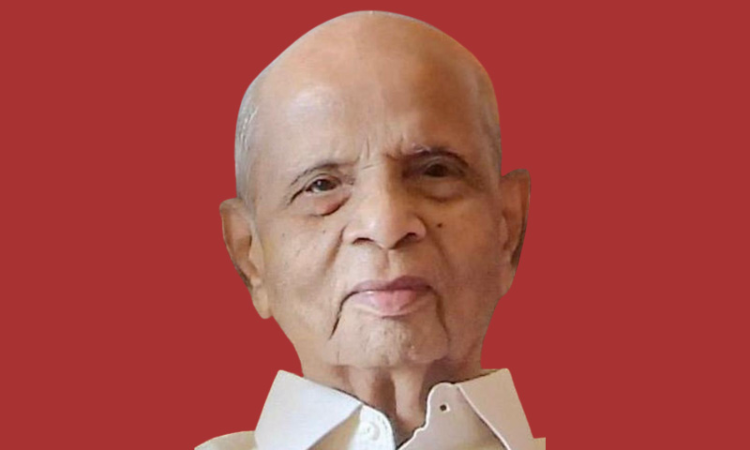'Think Mediation First' A Tribute to the Doyen of Indian Mediation – Mr D.S. Parikh
Shirin Khajuria
31 Jan 2022 10:10 PM IST

Mr D.S. Parikh, Senior counsel and a doyen of Indian Mediation, was spoken about with deep affection and in awestruck voices even by the most reputed Mediators in India. He passed away recently, on 28th January, at the age of ninety-four years, in the 73rd year of his practice
He enrolled on 4th February 1949 as a first-generation lawyer at the young age of 21 at the chambers of Bhaishanker Kanga and Girdharlal. Harnessing experience gathered over several decades of practise in the Bombay High Court and the City Civil Courts, he trained over 20 advocates, who are now well established. His son, Mr Ketan Parikh, is a well-respected senior advocate in Mumbai, carrying on the legacy of his father.
In 2004, when Hon'ble Justice Ajit Prakash Shah started the mediation movement in Bombay Courts, Mr D.S. Parikh was at its forefront and ever since, promoted ethical mediation and led many mediation policy discussions. He was actively involved with the framing of and the subsequent discussions on India's first Mediation Bill, 2021, which was referred to a Parliamentary Committee on 15th December 2021. He promoted the concept of 'Neutral Evaluator' in mediation.
Interestingly, he did not conduct mediations though he was an arbitrator of repute. Mr Parikh was the President of the 'Association of Mediators' (AMP), Mumbai and was highly respected by the Judges and lawyers alike. I believe his calm, soft spoken approach towards cross-examination set him apart from all others.
I never had the privilege of meeting him but was fortunate to have had the opportunity of listening to him virtually. His talks were very inspiring in their simplicity and clarity of thought, nudging us to think mediation first, to resolve any dispute.
I fondly remember an incident where, after one of his talks on mediation, I messaged a couple of my suggestions to him – that in pending suits, every two years the matter be automatically called out and considered for mediation; and that the empanelment of a mediator be renewable every two years, based on cases mediated or refresher courses completed.
Mr Parikh, ever polite and wise, responded thus:
"Thank you for your suggestions. Both are good and can be a part of implementation of Mediation in pending suits.
But that would be the second stage for dealing with them.
Shirinji, let us first roll out all the suits pending now and refer them to mediation.
Would you not like to meet the presiding judge with your other colleagues, and request him to initiate action in his court, and offer your full co-operation to implement our scheme? He should be very happy to work it out in his court as a pilot project! His initiative may also persuade other judges in their courts to follow his example!
It is our duty to meet the judges and persuade them.
Let us not content ourselves with making good suggestions and sit back expecting "others" to do the follow-up work."
Today I recollect his advice exhorting me – and perhaps many of us – to not be armchair critics but take the initiative and as the Father of the Nation said, 'be the change we wish to see in the world.'
I ask myself: when disputes are brewing, do we, as a society think mediation first? Do we attempt to resolve disputes through persons trained in the art and science of mediation, rather than litigating before the overburdened courts? Not yet, I think.
A mediation mindset needs efforts by all stake holders. It is active advocacy, not mere legislation, that will give a true fillip to mediation.
Can we—legal practitioners, disputing parties, judicial officers—espouse, persuade and promote 'Think Mediation First?' That would be our best tribute to the great man – Mr. Parikh.
The Writer is a Mediator SCMC & SIMI, Advocate-on-record, Supreme Court of India.


